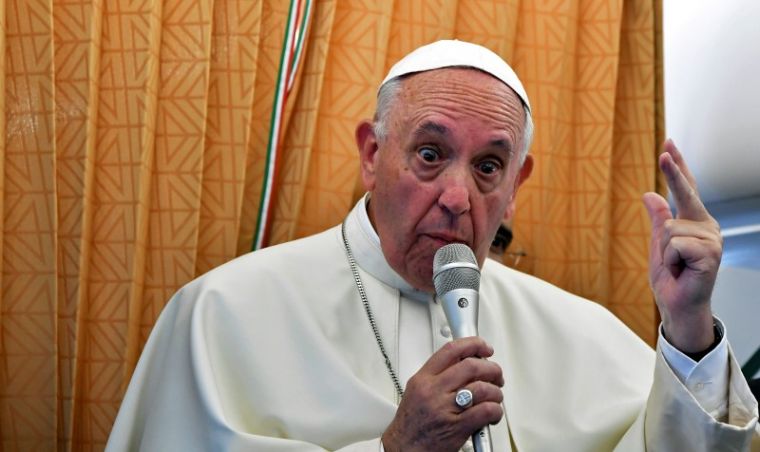Pope Francis: Church must ask forgiveness from gay people
Pope Francis has said Christians should seek forgiveness from gay people for the way they had treated them.
The pontiff addressed reporters on the journey back to Rome from Armenia on Sunday in his traditional "aboard the papal plane" conversations. He also said the Church should ask forgiveness for how it had treated women and for "having blessed so many weapons".

After a heated trip to Armenia, Turkey, Francis defended his use of the term "genocide" to describe the slaughter of Armenians by Ottoman Turks in 1915. To the outrage of Turkish officials who accused the Pope of adopting the "mentality of the Crusades" in his language, Francis it would have been "very strange" not to call the killings a genocide.
The pontiff used the word, which carries specific legal weight, in his address at the Armenian presidential palace on Friday.
"I have never said it with an offensive spirit, but objectively," he told reporters.
Turkey has a particularly uncomprosing attitude towards the killings in 1915. It says the number of Armenian deaths are exaggerated by historians and people on both sides as the Ottoman Empire collapsed in World War I.
On the day thousands marched in London to celebrate gay pride, Francis also said the Church must not just apologise but ask for forgiveness for how it has treated gay people.
"We Christians have to apologize for so many things, not just for this [treatment of gay people], but we must ask for forgiveness, not just apologize! Forgiveness! Lord, it is a word we forget so often!" he said.
Francis has been hailed as the most open minded Pope in his attitude towards homosexuality after he famously said "who am I to judge?" in his first foreign trip after his election in 2013.
On his return trip from Armenia on Sunday, Francis repeated a slightly moderated version of that phrase.
"The questions is: if a person who has that condition, who has good will, and who looks for God, who are we to judge?" he said.
He also recalled the Church's teaching that homosexuals "should not be discriminated against. They should be respected, accompanied pastorally."
He added that different cultural attitudes towards homosexuality did not means gay people should be marginalized anywhere in the world.
In the aftermath of the UK's decision to leave the European Union, he said he hoped the bloc could give itself another form in the new era.
"There is something that is not working in that bulky union, but let's not throw the baby out with the bath water, let's try to jump-start things, to re-create," he said.











